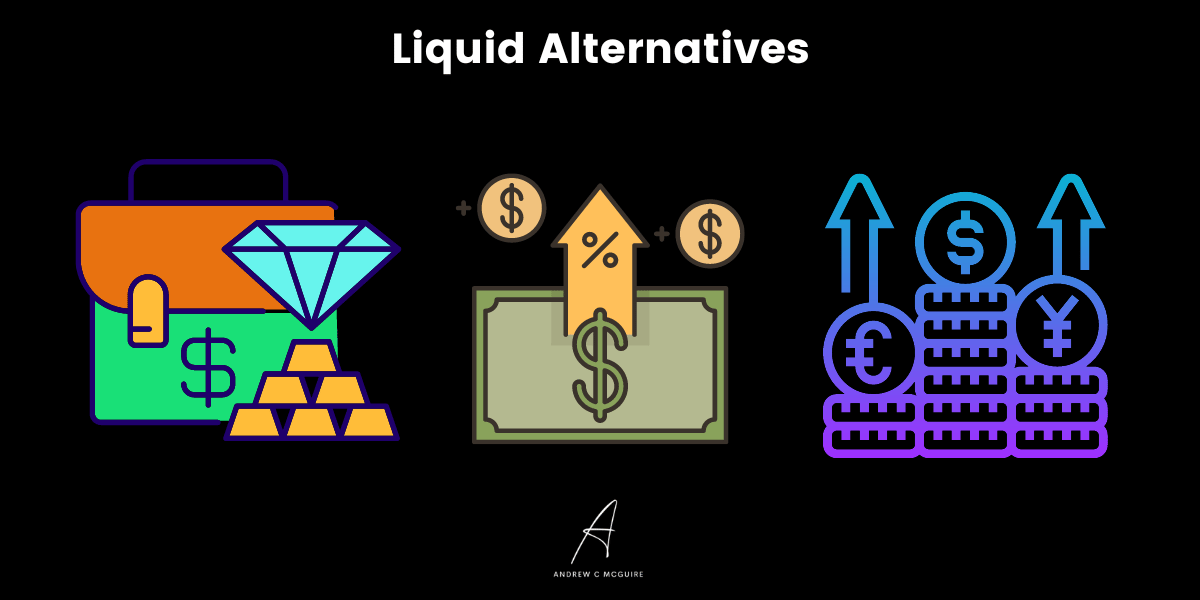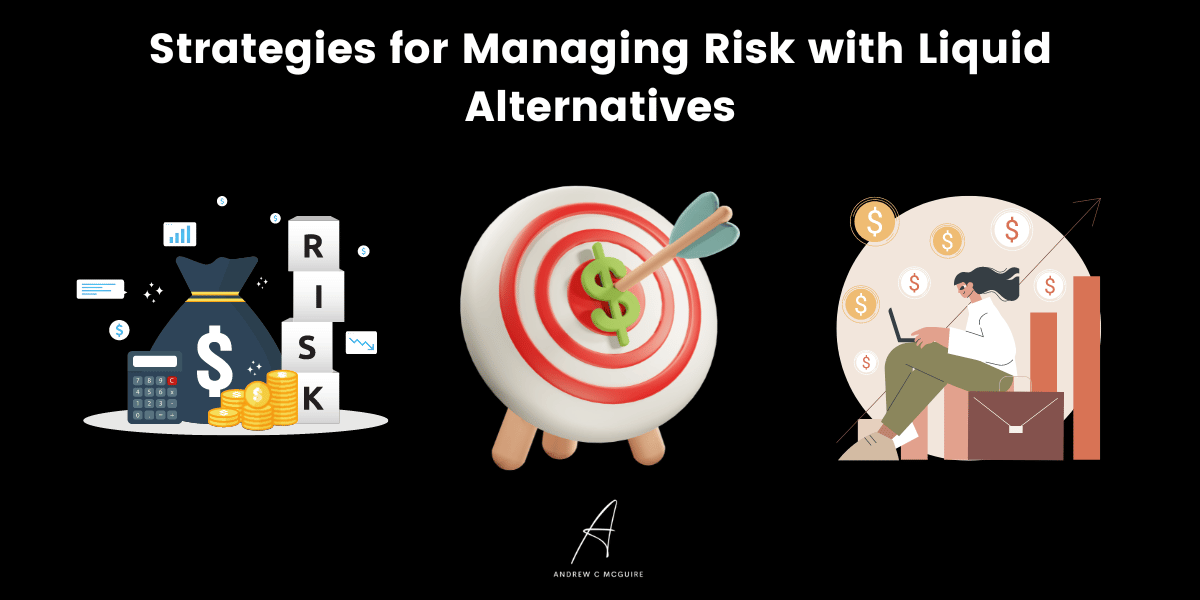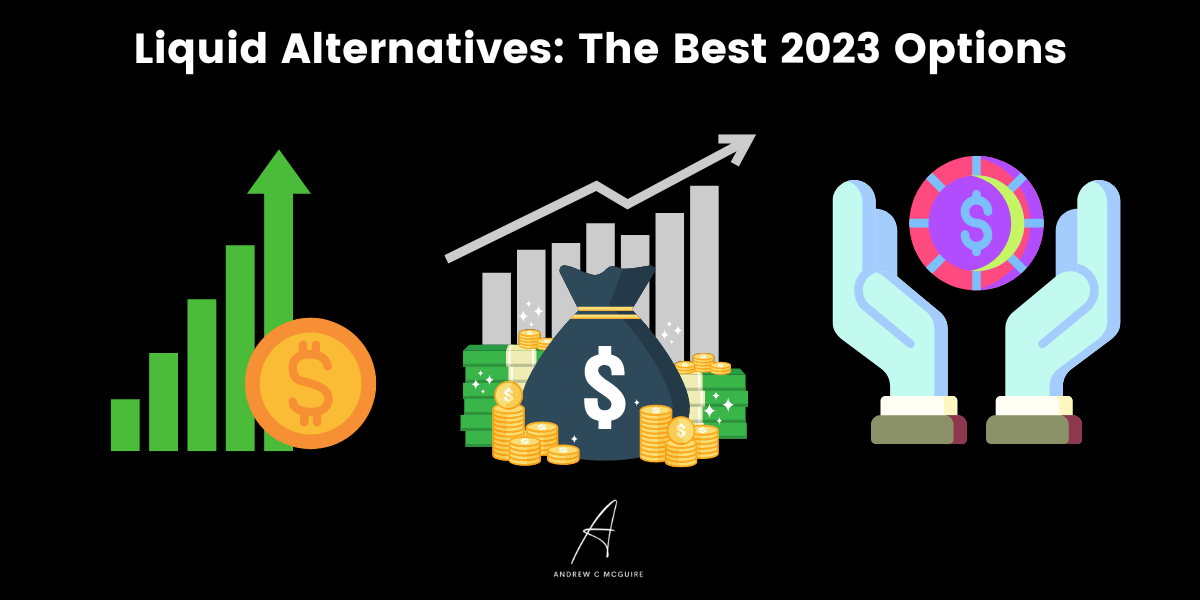Investing in liquid alternatives such as precious metals and gold can help you protect your wealth from market volatility. With the right strategies, these investments can be an effective way to generate long-term returns that will benefit both your current financial needs and future goals. When investing in gold and other precious metals, you must always remember that the precious metals investment company you are dealing with ultimately affects the success of your investment. This is why I recommend Augusta Precious Metals to anyone planning on investing in rare metals. Start exploring today how liquid alternatives could be a part of your overall portfolio management strategy.
- Money magazine’s “Best Overall” Gold IRA Company in 2022
- Quarterback Joe Montana and his financial team chose Augusta
- Zero fees for up to 10 years — every customer qualifies
- Investopedia’s “Most Transparent” Gold IRA Company in 2022
- Free guides on how to avoid gimmicks & high-pressure tactics used by gold IRA companies
We earn a commission if you make a purchase, at no additional cost to you.
Liquid alternatives are becoming increasingly popular as an investment option, especially in times of economic uncertainty. For those looking for ways to protect their wealth from inflation and a recession, liquid alternatives can provide the perfect solution. This blog post will explore what exactly liquid alternatives are, how to invest in them, any tax implications associated with investing in these assets, and strategies for managing risk when it comes to this type of investment. By the end of this blog, you should have all the information necessary to decide if investing in liquid alternatives is right for you. Just before you dive into the core of liquid alternative investment strategies, listen to what quarterback Joe Montana says about Augusta Precious Metals and why his financial advisors chose the rare metal investment company to invest with.
[presto_player id=4770]
What are Liquid Alternatives?
Liquid alternatives are investments that offer a more liquid form of investing than traditional stocks and bonds. They provide investors with the opportunity to diversify their portfolios, reduce risk, and potentially increase returns. Liquid alternatives include hedge funds, private equity funds, real estate investment trusts (REITs), commodities, currencies, and other alternative asset classes.
Definition of Liquid Alternatives
Liquid alternatives are investments that provide access to assets that may not be available through traditional stock or bond markets. These investments typically have lower liquidity requirements than traditional stocks or bonds but still offer the potential for higher returns due to their unique characteristics such as leverage or specialized strategies used by fund managers.
Benefits of Investing in Liquid Alternative Investments
Investors can benefit from investing in liquid alternatives because they can gain exposure to different asset classes without having to invest large amounts of funds upfront. Additionally, these types of investments often come with lower fees compared to actively managed alternative mutual funds and ETFs which makes them attractive for long-term investors looking for cost savings over time. Furthermore, many liquid alternative products also offer tax advantages when held within certain retirement accounts like IRAs or 401(k)s making them even more attractive options for those looking for tax efficiency when building wealth over time.
Liquid alternatives provide investors with a unique opportunity to diversify their portfolios and access returns that may not be available through traditional investments. By understanding the potential risks and rewards associated with these assets, investors can make informed decisions about how to best incorporate liquid alternatives into their investment strategy.
Key Takeaway:
Liquid alternatives provide investors with the opportunity to diversify their portfolios, reduce risk, and potentially increase returns while also offering lower fees and tax advantages. Benefits include diversification, reduced risk, the potential for higher returns, lower fees & tax efficiency.
Strategies for Managing Risk with Liquid Alternatives
Managing risk is an important part of any investment strategy, and liquid alternatives are no exception. It’s essential to understand your own risk tolerance and investment goals before investing in liquid alternatives so that you can develop a plan for managing the risks associated with these investments.
Understanding Risk Tolerance and Investment Goals in any investment. Before investing in liquid alternatives, it’s important to assess your own financial situation and determine what level of risk you are comfortable taking on. This will help you decide which types of investments are right for you, as well as how much money to allocate toward each type of investment. Additionally, understanding your long-term financial goals will help guide your decision-making when it comes to choosing the right investments for you.
Once you have determined your risk tolerance and set up a portfolio that meets your needs, there are several strategies available to manage the risks associated with different types of investments such as stocks, bonds, mutual funds, or ETFs (exchange-traded funds). For example, diversifying across asset classes can reduce overall portfolio volatility by spreading out potential losses over multiple sectors or industries; rebalancing regularly helps maintain desired levels of exposure; hedging against market downturns through short selling or derivatives trading; using stop loss orders; setting up automatic triggers based on predetermined criteria; or employing active management techniques such as tactical asset allocation.
Key Takeaway:
Key takeaway: Understand your risk tolerance and investment goals before investing in liquid alternatives, and employ strategies such as diversification, rebalancing, hedging, stop loss orders, and active management to manage the associated risks.
Is Investing in Liquid Alternatives Right for You?
Investing in liquid alternatives can be an amazing way to diversify your portfolio and safeguard your wealth from inflation and recession. Before investing, it is important to evaluate your financial situation and investment plans to determine if liquid alternatives are the right choice for you.
When considering an investment strategy, it is important to understand what kind of return you are looking for, how much risk you are willing to take on, and how long you plan on holding onto the investments. This will help you decide which type of investments would best suit your needs. Additionally, understanding any tax implications associated with different types of investments can help inform your decision-making process.
Investing in liquid alternatives has several advantages including greater liquidity than traditional investments such as stocks or bonds; lower fees compared to other alternative investments; access to a wider range of asset classes; potential for higher returns over time; increased diversification benefits due to low correlation between asset classes; and more flexibility when making changes or exiting positions quickly. However, there are also some setbacks that should be considered before investing such as higher volatility than traditional assets due to their underlying complexity; lack of transparency regarding pricing structure or underlying strategies used by managers; limited track record since many products have only been available for a few years at most, and high minimums required by some funds which may not be suitable for smaller investors’ budgets.
Key Takeaway:
Liquid alternatives can offer increased liquidity, lower fees, access to a wider range of asset classes, and the potential for higher returns. However, they also come with setbacks such as higher volatility, lack of transparency, and high minimums.
Conclusion
In conclusion, liquid alternatives are an increasingly popular investment option for individuals looking to diversify their portfolios and protect their wealth from inflation and a recession. While there is no one-size-fits-all approach when it comes to investing in liquid alternatives, understanding the tax implications of such investments as well as strategies for managing risk can help you make informed decisions that best suit your individual needs. Ultimately, whether or not investing in liquid alternatives is right for you largely depends on your financial goals and objectives.
FAQs
Andrew’s Gold IRA Pick
Augusta Precious Metals is the most trusted gold IRA company





